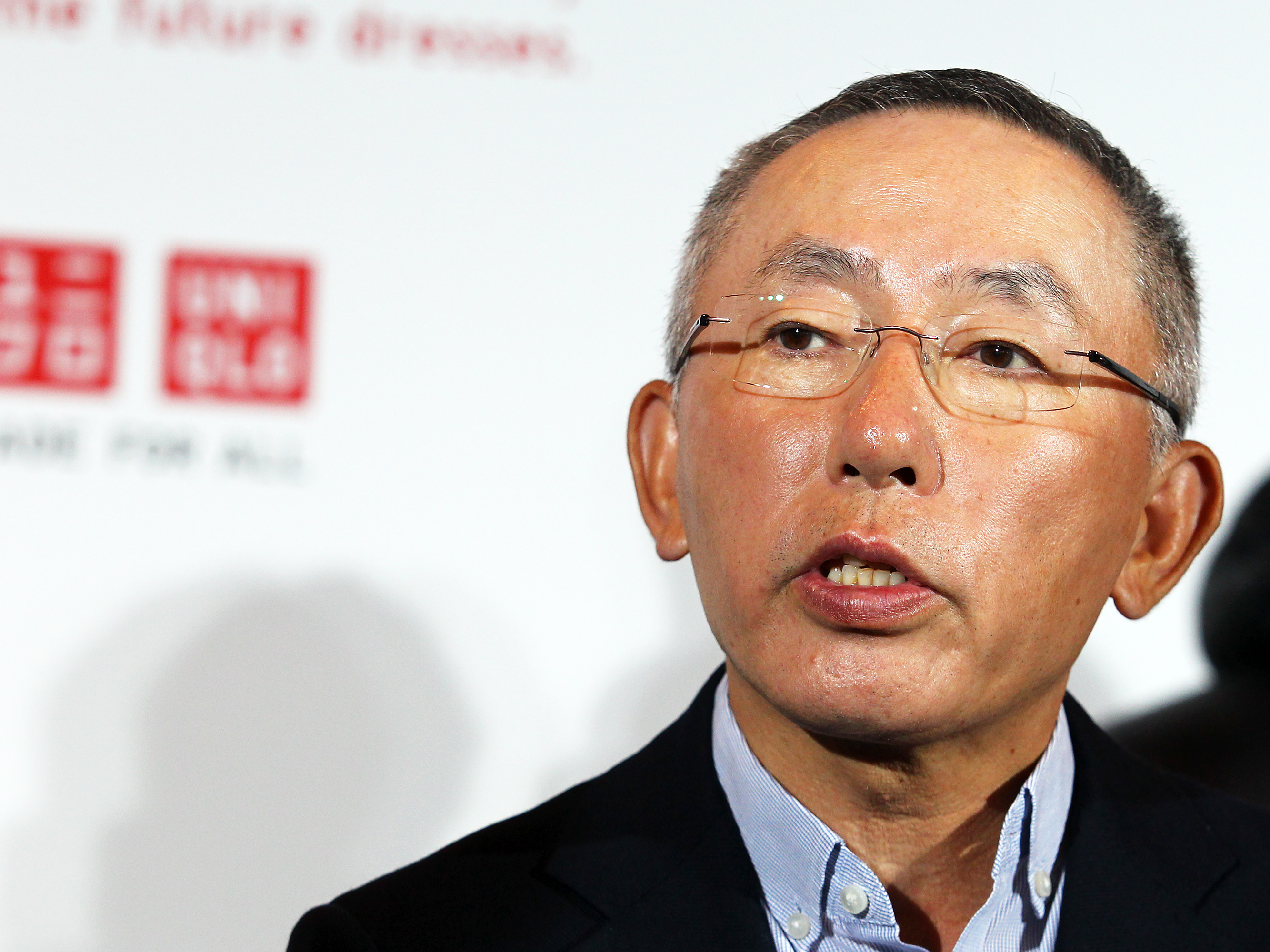- When asked about his succession plan, CEO of Uniqlo parent company Fast Retailing Tadashi Yanai thinks his job is “more suitable for a woman” because “they are persevering, detailed oriented and have an aesthetic sense,” he told Bloomberg.
- Only 4.1% of executive-level roles at publicly traded companies in Japan are filled by women, according to Japan’s Gender Equality Bureau Cabinet Office.
- With a net worth of $24.8 billion, Yanai is the richest man in Japan, Business Insider previously reported.
- Visit Business Insider’s homepage for more stories.
In the 35 years since he opened the first Uniqlo store, Tadashi Yanai has built his company into Asia’s largest clothing retailer. But when asked about his succession plan, one thing, in particular, is clear to him.
“The job is more suitable for a woman,” Yanai told Bloomberg in an interview published August 4. “They are persevering, detailed oriented and have an aesthetic sense.”
Uniqlo’s success has made Yanai the richest person in Japan with a net worth of $24.8 billion, Business Insider previously reported.
The 70-year-old billionaire founded Uniqlo in 1984 and has grown its parent company, Fast Retailing, into the largest retailer in Asia, Business Insider previously reported. Uniqlo’s focus on simple, causal styles that appeal to a diverse clientele has allowed it to rapidly expand across the globe. Uniqlo’s stores outside of Japan now comprise the majority of the chain’s sales, according to its website. The company made over $18.9 billion in revenue in 2018, Bloomberg reported.
A commitment to diversifying the top ranks of Uniqlo.
This isn't the first time Yanai has expressed his commitment to diversifying the top ranks of his company. In 2018, Uniqlo filled more than 30% of its management positions with women, according to Bloomberg. The Japanese retailer is now aiming to put women in more than half of its senior positions.
Yanai's efforts are especially rare in Japan, where only 4.1% of executive-level roles at publicly traded companies are filled by women, according to Japan's Gender Equality Bureau Cabinet Office.
Maki Akaida, the head of Fast Retailing's Japan unit is a "possibility" for the CEO position, Yanai told Bloomberg. If selected, she could face substantial headwinds because of her gender. Female executives often face implicit gender bias, Business Insider previously reported. As a result, female CEOs are 45% more likely to be dismissed than male CEOs, a 2018 study by Vishal K. Gupta at the University of Alabama, Sandra C. Mortal at the University of Alabama, Sabatino Silveri at the University of Memphis, Minxing Sun at Clemson University, and Daniel B. Turban at the University of Missouri found.
Many founders and CEOs prioritize their succession plans.
Having an eye on their succession plans is one strategy that has helped many successful founders and CEOs build strong foundations.
Hedge fund manager Ray Dalio allotted 10 years to find someone to succeed him as the co-chief investment officer of Bridgewater, he told Business Insider's Bradley Saacks and Richard Feloni in July.
"If you haven't done something three times before successfully, don't bet on your ability to do it," Dalio said.
And at Facebook, succession planning extends beyond the C-Suite.
"When we do performance reviews with folks, a lot of the review is just based on what they do over the period of the performance review, but do you have a good successor, are all your key positions filled, do all your key people have successors?" CEO Mark Zuckerberg told LinkedIn cofounder Reid Hoffman on an episode of Hoffman's podcast "Master's of Scale," Business Insider previously reported. According to Zuckerberg, this ensures that the company won't lose any momentum when key players leave.

